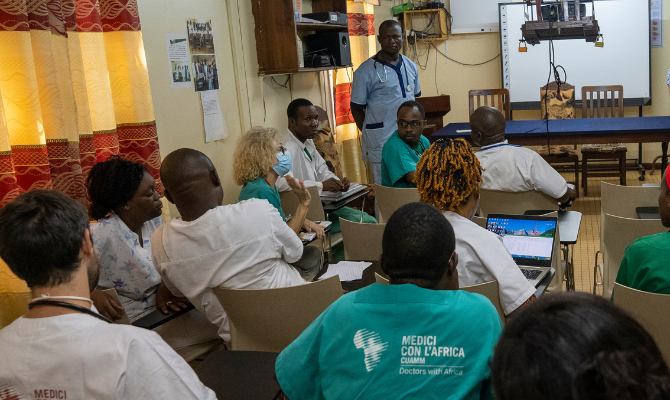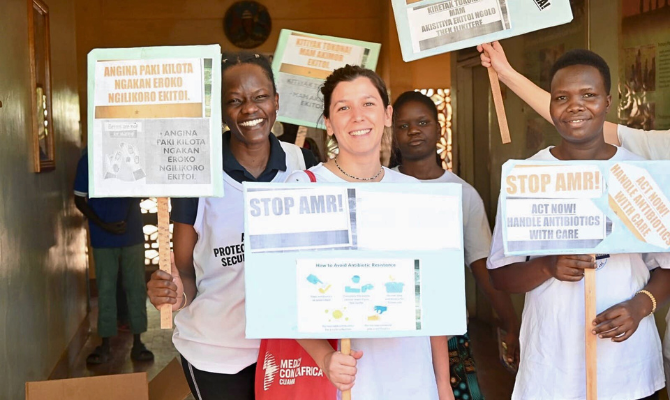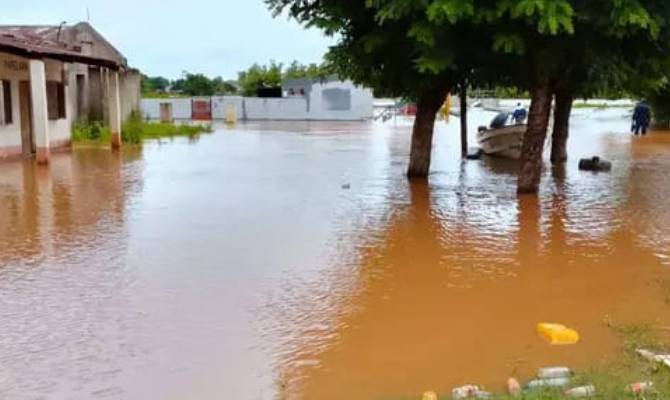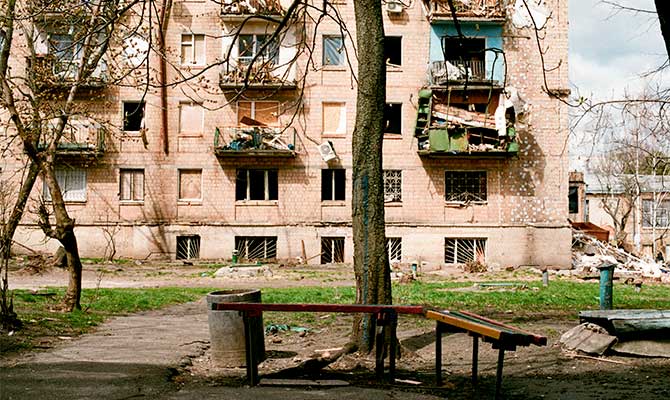A training course was held in Bangui, Central African Republic, consisting of two three-day sessions. What was the main objective? To contribute to the reduction of nosocomial infections and, in particular, to improve hygiene in the hospital environment, to learn and master standard and complementary precautions in the fight against infections, and to know how to properly handle separate collection and management of hospital waste. In addition, the aim was to master cleaning, disinfection and sterilisation methods and to establish a system for evaluating and monitoring infection prevention and control practices.
“The knowledge I gained during this training was completely new to me. I am sure it will enable us to know how to avoid and prevent infections in the ward, to move around the operating theatre in accordance with appropriate infection prevention and control (IPC) standards, to help the team with equipment sterilisation, and to encourage patients’ parents to wash their hands and our cleaning staff to follow procedures,” said Dr. Junior Gbelesso, paediatric surgeon at CHUPB. “In addition, training of this kind, carried out regularly, is important for refining our knowledge and acquiring new skills.”
During the first session, in May this year, 11 paramedics and 4 doctors were trained. During the second session in June, 14 people who are part of the hospital hygiene staff were trained.
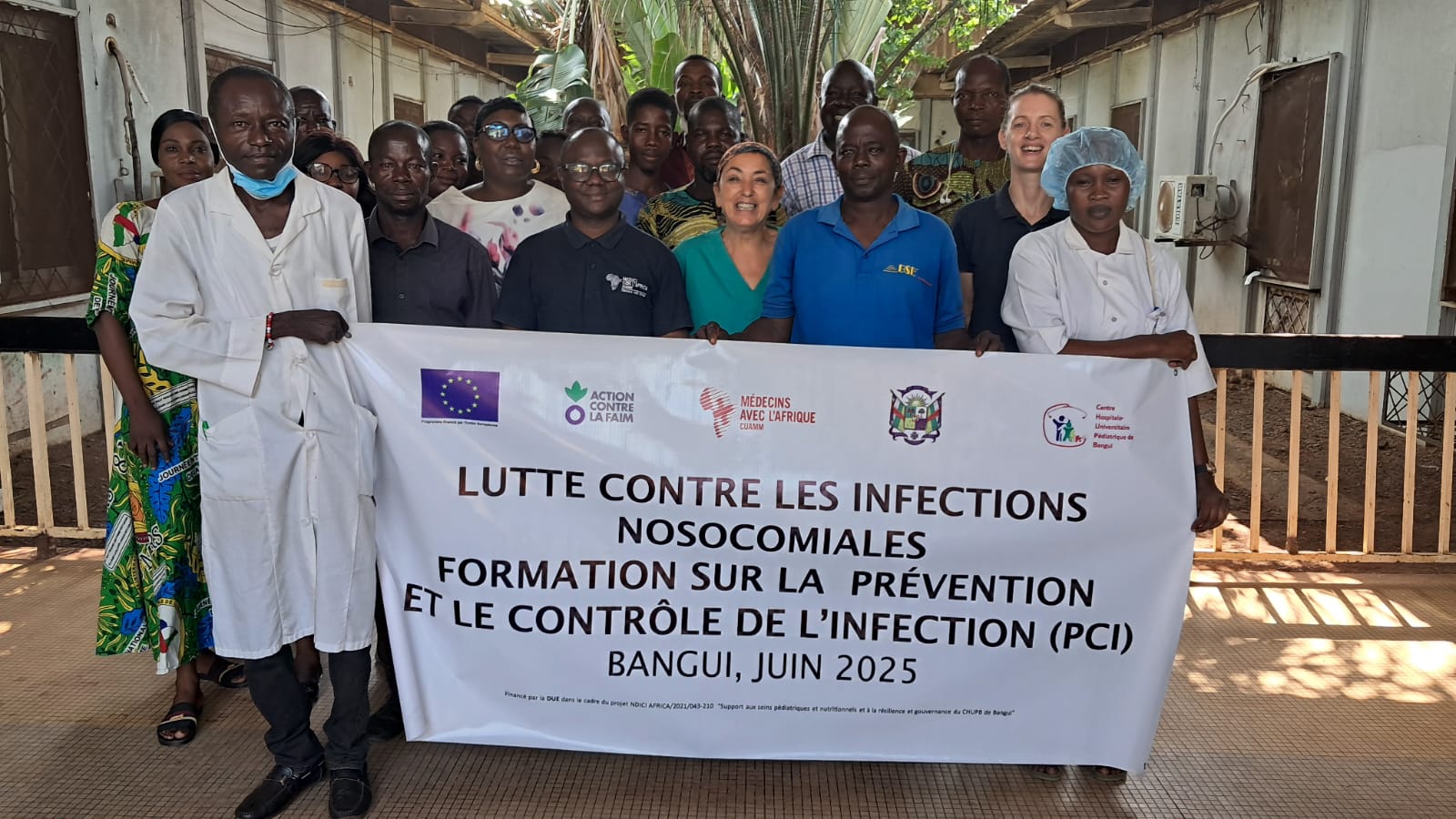
The operators were supported during the sessions by a team of various professionals: a consultant from the World Health Organisation, two experts for IT support and personnel management, and the head of the hospital hygiene service for the coordination of emergency care and medical evacuations. They were joined by a paediatrician and the chair of the CHUPB epidemic monitoring committee, whose role is to supervise and coordinate the activities of the hygiene committee and all IPC activities.
“I was not fully aware of the essential role of PCI in hospitals. This training has enabled me to understand that all staff have an important role to play in implementing and complying with PCI standards,” added Ali Dyane, head nurse of Unit C, which is dedicated to patients admitted, aged 10-15. “Training opportunities like this are important because they allow you to keep up to date and learn new procedures, such as how to wear protective equipment in the event of an epidemic,” he concluded.
The skills and capacity building activities, as well as the practical training of healthcare workers at CHUPB, are part of the intervention “Support to paediatric and nutritional care, resilience and governance at CHUPB”, funded by the European Union and implemented with Action Against Hunger (ACF).

